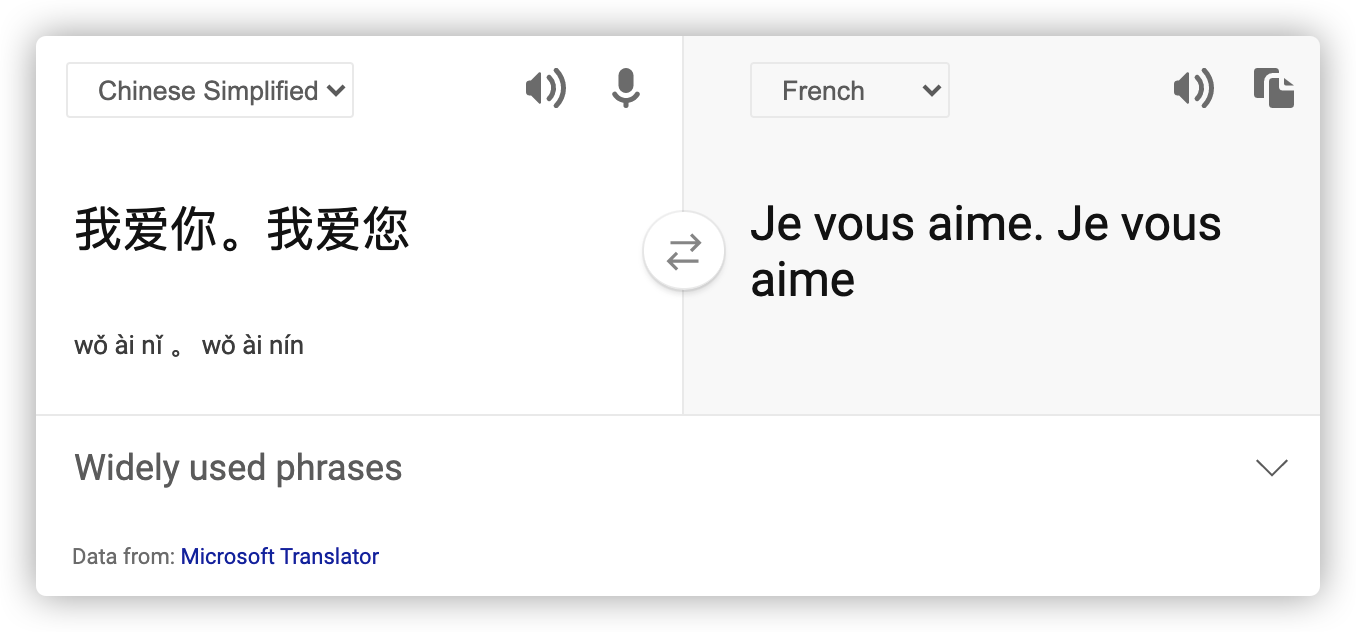Hello Friends!
I’m Fionna, a product manager, YouTuber and late-night FM DJ.
Every Sunday I share a story on what inspires me to be creative and musings that week. I’m fascinated by design, technology, people, languages, and the idea that I can use them to reinvent myself.
You will find that I express myself through different languages, witty mEmeS and impeccable formatting. Intrigued? Want more content like this in your inbox?
Let this be our creative outlet.
Twitter | YouTube | Instagram | LinkedIn | Newsletter | Spotify | Buy me a 🍍
🎙️ Listen to this story on SpotifySpeaking first or grammar first?
I have been using the "每日法语听力 (Daily French Listening)" app for the last 2 months. Every day it suggests a few episodes and I was delighted to discover the series "InnerFrench" by Hugo Cotton, a French teacher in Poland. After watching his videos, it dawned on me that why after years of learning French in school, it didn't enable me (or give me the courage) to have a meaningful conversation with native speakers.
That's because schools or languages classes got the best order for learning reversed.
In Hugo’s words:
Le problème, c'est que quand on apprend une langue à l'âge adulte, on fait le contraire. On commence par apprendre la langue dans le registre formel, dans des livres de grammaire à l'école avec les professeurs, et puis ensuite, on essaye de s'exprimer de manière plus naturelle, plus informelle. Mais c'est assez difficile à faire parce qu'on a déjà une certaine rigidité à cause de toutes les règles qu'on a apprises avant. C'est pour ça qu'il faut vraiment essayer d'écouter des choses un peu plus informelles.
Infants in France, anywhere really, start learning language from talking to their parents at home. They are constantly immersed in the environment, listening and making mistakes. They hear what French conversations “sound” like and how do their siblings ask for more candy. It’s all very informal and they are motivated by “survival” or getting the toy they want.
In primary school, they start to learn grammar, expand their vocabulary and how to write formal essays etc. But when you look at adult language classes, it’s the complete opposite!
We start with grammar. The boring stuff.
Whenever I’m writing a sentence, I’m thinking: Should it be present tense, future tense, future simple, passé compose, l’imparfait? Should I use être or avoir? Is the word feminine or masculine? Is there an auxiliary? Do I pronounce the “ent”? The list goes on.
So even before we get to speaking, we’re doing brain gymnastics to construct the perfect sentence. The result?
We become literate mutes.
Even if we want to speak naturally or express ourselves with personality, it’s too late. We’re stuck with the “correct” way of speaking which makes us sound just like everyone else. Worst of all, it makes us sound like the text book.
So we need to develop this language instinct. Listen for 30+ mins everyday, speak using what you know, make a ton of mistakes to get the “feel” of how this language works. Somethings will come naturally and some won’t make any sense. Then, it’s time to pull up a textbook or Google to figure out what is right and solidify that through repetition.
I learned about the book “The Language Instinct” by Steven Pinker from Hugo just this week. But in a New Year gift exchange, I said I wanted to get better with languages in 2021 and my colleague got me that book! It’s in an Amazon package somewhere and I can’t wait to read it! Leave me a comment if you’ve read it or want me to review it :)
“Vous” vs “Tu”?
Well, you could say that grammar gets easier after practice, then you can speak more freely. Of course that’s true. Hence my second point.
The expressions we learn in textbooks are rigid and dry. Most importantly they don’t help with everyday conversations, which is the reason why many people are learning in the first place - to talk people.
In textbooks, if there’s a mention of “you”, it uses “vous”, which is the formal version of “tu”. But unless you are President Macron, a news anchor, or speak to strangers often like customers, you would use “tu” instead of “vous” 90% of the time since you are talking to friends, colleagues or family daily.
Even translation services like Google or Microsoft return “vous” when you intend to say “you”. Taking the famous phrase, “Je t’aime” or “I love you” that we hear in movies. I bet you have never heard anyone say “Je vous aime”.
Clearly, there’s a misconnect here. I’ve been taught to use “vous” to address the other person because it’s the polite thing to do. But it serves no good when all I want is to talk to my friends who already speak French or make friends in French.
By the way, the handy translator becomes useless when I want to to conjugate for “tu”. Even if I try to trick the system and translate from informal and formal Chinese, it still returns “vous” for both.
How to talk like the French
I’m in no way a French teacher and this is not intended to be a comprehensive lesson. However, as someone who has gone to school for French and is picking it back up with a new mindset, I'd love to reiterate some tips* for French learners so we can all speak this language naturally and confidently like a local.
*These tips were inspired by Hugo’s videos which are absolutely amazing for learning French, and I linked the specific videos at the end of the post.
Well, for starters:
Replace "nous" with "on" for saying we
Drop the "ne" in negatives: Je ne l’aime pas. → Je l'aime pas.
Shorten "tu as" to "t'as"
Focus on the “familiar” register
French has 3 major “registers” or levels of formality: formal, common, and familiar. Technically 6 according to this but “literary” and “slang” are not going to help us much here.
The “familiar” register is what most people use every day in France for speaking with friends and family. It’s a mix of ‘light’ slang and formal French, and varies on the speakers’ age, level of education, personal vocabulary choice and above all, the context. [ref]
An example from Hugo: Can you pass me the salt?
Formal: Pouvez-vous me passer le sel?
Common: Est-ce que tu peux me passer le sel?
Familiar: Tu peux me passer le sel? ← say this
Ask questions in a natural way
If you are like me who starts every question with “Qu’est-ce que …”, you might want to add these to your repertoire because we should avoid sounding like a textbook.
How was the <event>?
Comment ça s’est passé, ton <event>?
Ça s’est bien passé, ton <event>?
How is your <event> going?
Comment c’était, tes / ton / le / la <event>?
C’en est où, ton <event>?
T’en es où avec ton <project>?
Ça avance ton <project>?
What are you doing?
C'est quoi que tu es en train de faire?
What’s this <at location>?
C'est quoi ce truc <at location>?
How come …?
Comment ca se fait que …?
What do you think (ask for an opinion)?
Common: Qu’est-ce que tu en penses?
Familiar: T’en penses quoi? ← say this
Familiar: A quoi tu penses? ← say this
If you were me what would you do?
Tu ferais quoi à ma place?
Tu aurais fait quoi à ma place? (if the event already happened)
Tell me more, why did you say that?
C’est-à-dire?
Qu’est-ce qui te fait dire ça?
A Suggestion for Web Translators
Give users the option to choose the level of formality. Is it for a formal or informal setting?
Naver, the Korean search engine, nailed this. Its translation service called "Papago" has a toggle for “honorific” since Korean has 2 distinct levels of formality, and trust me, you do not want to get that mixed.
So if I’m on a first name basis with that person, I can turn “honorific” off to get the informal translation. How convenient!
Resources
This post was inspired by Hugo’s videos and I’m not taking credit for anything. I recommend you to watch the following for a more comprehensive understanding of the topic.
There’s so much to learn about French, but I’m much more confident than before because I’ve found amazing resources and avenues to help me learn persistently and a “develop the language instinct” mindset to keep me on the naturel.
If you found this helpful in anyway, I’d love it if you could share it with a friend or on social media - whichever floats your boat :)
Leave a comment below if you have any questions or feedback, happy to keep the conversation going. See you next week!
What’s coming to your inbox
Languages and me: Korean
My favorite widgets
Where to find me
👩💻 Twitter: @fionnagan
👩🍳 YouTube: Fionna Gan
👩🎤 Instagram: @fionna.gan
👩🎓 LinkedIn: Fionna Gan
🤹♀️ Newsletter: The Creative Outlet
👩🚀 Voice: The Creative Outlet
























Share this post